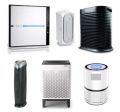Global EMI shielding materials market to reach us$ 9,600 mn by 2026

According to a new report by Transparency Market Research (TMR) titled ‘EMI Shielding Materials Market – Global Industry Analysis, Size, Share, Growth, Trends, and Forecast, 2018–2026’, the global EMI shielding materials market was valued at around US$ 5,400 Mn in 2017 and is anticipated to expand at a CAGR of over 6% from 2018 to 2026. Electromagnetic interference (EMI) can be defined as the electromagnetic field in radio frequency spectrum caused by nearby electronic devices, which can negatively affect the working of electronic devices located in surrounding areas. The electromagnetic field is also harmful to humans. Hence, EMI shielding materials such as metals, laminates, and conductive coatings are used to surround electronic devices and guard them against electromagnetic frequencies. These materials are extensively employed in defense, electronics, aerospace, automotive, and other industries where large amounts of electronic communication are used. Majority of electronic devices and equipment that are sold across the globe are manufactured in Asia Pacific and exported to other regions such as North America, Europe, Latin America, and Middle East & Africa. Hence, Asia Pacific is a major consumer of EMI shielding materials.
Request a Sample –
https://www.transparencymarketresearch.com/sample/sample.php?flag=S&rep_id=19091
Growth of the telecommunications industry drives the market
The telecommunications industry has been growing for the last 30 years. Demand for EMI shielding materials in this industry increases with every new technological development such as smartphones and Internet. Rise in use of these technologies is projected to increase emission of electromagnetic signals; therefore, it is important that signals do not interfere with each other, which can be ensured by the use of EMI shielding materials. In the telecommunications industry, EMI shielding materials are used in communication towers and associated wires and cables and server rooms and related instrumentation. Apart from shielding electronic devices from electromagnetic frequencies, EMI shielding materials also help protect devices during extreme environmental conditions such as strong winds.
Expansion of EMI Shielding Materials Market Restricted by Regulatory Guidelines
Electromagnetic frequencies are harmful to human health. These also affect the working of other electronic devices. Hence, there are regulations regarding excessive emission of electromagnetic frequencies to protect humans and other nearby electronic devices. These regulations ensure the appropriate use of EMI shielding materials. However, stringent enforcement regulations have slowed down the development of advanced electronic devices. This, in turn, negatively affects the utilization of EMI shielding materials in industries such as telecommunications, aerospace, defense, electronics, and health care.
Use of EMI Shielding Materials to Increase in the Defense Industry
Many devices and equipment in the defense industry such as GPSs, radars, military satellites, and handheld communication devices require EMI shielding materials. The number of devices using electromagnetic signals has increased due to the development of advanced weapons such as fighter aircrafts and drones. This has increased the importance of ensuring that electromagnetic signals do not disrupt military devices, as improper working of devices can risk lives of soldiers. As a result, the importance and use of EMI shielding materials is expected to increase in the defense industry.
Request for covid19 impact analysis –
https://www.transparencymarketresearch.com/sample/sample.php?flag=covid19&rep_id=19091
Global EMI Shielding Materials Market is Segmented into Material, Application, and Region
In terms of material, the market has been categorized into conductive coatings, metals, conductive plastics, laminates, and others. The conductive coatings segment is likely to increase at a considerable pace during the forecast period, as it can be used individually as well as in combination with other materials such as conductive plastics and laminates. The metals segment is also expected to expand at a substantial pace, as these can be used in a wide range of end-user industries such as automotive, defense, aerospace, and telecommunications. In terms of applications, the market has been segmented into defense, electronics, automotive, telecommunications, aerospace, and medical. The defense segment is expected to expand at a rapid pace due to the increase in activities such as manufacturing and innovation in the industry. This segment is likely to be followed by the automotive segment, which has been a consistent consumer of EMI shielding materials. In terms of region, the market has been divided into North America (the U.S. and Canada), Latin America (Brazil, Mexico, and Rest of Latin America), Europe (Germany, the U.K., France, Italy, Spain, Russia & CIS, and Rest of Europe), Asia Pacific (China, India, Japan, ASEAN, and Rest of Asia Pacific) and Middle East & Africa (GCC, South Africa, and Rest of Middle East & Africa).
Companies Headquartered in Developed Economies to Dominate Global Market
Key players in the global EMI shielding materials market include Laird Technologies, 3M Inc., Parker Hannifin Corporation, HEICO Corporation, and Simotec (Thailand) Co. Ltd. Every region and country has several local players. However, their geographic reach and variety of products are highly limited as compared to multinational companies.






